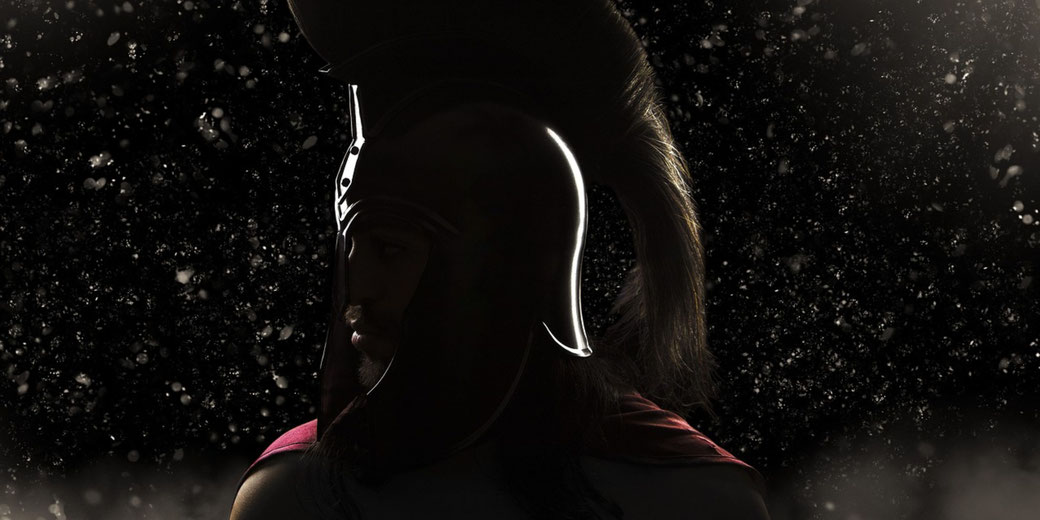The Spartan ‘mirage’: Everything you think you know about ancient Sparta is wrong

Simple living, strict rules, and military skill is how ancient Sparta is usualy described in textbooks and pop culture. Yet historians now say that this is a very inaccurate image, a so-called 'Spartan mirage', and was built by outsiders and accepted without question.
So, is everything we thought we knew about Sparta actually a lie?
What is the 'Spartan mirage'?
This term 'Spartan mirage' was made popular by well-known French scholar François Ollier in his 1933 article, Le Mirage Spartiate.
It describes how writers long ago and later scholars made Sparta look like a model of moral strength, order, and simplicity.
According to Ollier, the Spartan mirage was a false image that hid the true nature and variety of Spartan society.
The surprisingly limited information we have
One of the main sources about Sparta is Thucydides, the fifth-century BC historian who wrote about the Peloponnesian War between Sparta and Athens.
Thucydides respected Sparta for its steadiness, order, and refusal to change its social values.
He compared it with Athens, which he saw as more creative, democratic, and ambitious, but also more likely to face corruption, rivalries, and unrest.
Thucydides showed Sparta as a conservative and balanced society that followed its old laws and customs without question.
He also praised its military system, which trained its citizens from childhood to become loyal and disciplined soldiers.
Another important source is Plutarch, a biographer and writer who lived in the first and second centuries AD.
He wrote about the lives of famous Spartans, such as Lycurgus, the legendary lawgiver who set up the Spartan constitution; Leonidas, the king who died bravely at Thermopylae; and Agesilaus, the commander who led Sparta to victory over Persia.
Plutarch used these people as great examples to show moral lessons and to encourage his readers to follow their virtues.
Because of this, he often made Sparta look like a perfect society that valued fairness, simple living, bravery, and loyalty above all else.
Why are these two sources a problem?
Both Thucydides and Plutarch had their own reasons and problems, however.
Thucydides was an Athenian who did not think highly of democracy when it got out of control, and he often thought that rule by a few wealthy people was better.
He also did not know a lot about Sparta, since it was a secretive and isolated state that did not welcome outsiders or keep many records.
On the other hand, Plutarch was a Roman who lived centuries after Sparta’s power faded. He used older sources that often disagreed or were not entirely reliable.
He also looked back to Sparta with nostalgia and an overly positive view, because he was unhappy with the excess and chaos of his own time.
Therefore, we cannot accept the accounts of these two ancient writers without question.
We must remember their underlying points of view and the motives behind their writing, always comparing them with other sources that give different information or opinions.
For example, we can look at the writings of Xenophon, a Greek soldier and historian who stayed in Sparta as a guest for a few years and saw its culture firsthand.
We can also look at the archaeological evidence that shows parts of Spartan life that were not recorded by written sources, such as its economy, religion, art, and buildings.
So, what do we actually know about Sparta?
Often, some modern portrayals (especially in movies and TV) have made Sparta seem more focused on war than it really was, and they have overlooked its use of diplomacy, art, and religion.
Meanwhile, classical texts often praised their military actions, such as the stand at Thermopylae, but ignored their political planning and cultural achievements.
For instance, the Spartans made careful agreements and led the formation of the Peloponnesian League.
This shows that they did not depend solely on force to achieve their goals.
In addition, archaeological evidence shows that Spartans made simple pottery (though not as finely made as pottery from Athens) and took part in religious festivals.
This indicates that they cared about cultural events along with their military plans.
These facts contrast with the simple view of Sparta as a state driven only by war.
So, this idea, the so-called Spartan mirage, helps us question our assumptions and look more closely at our sources.
It also reminds us that history is not a fixed or purely factual record, but a story influenced by the personal opinions and choices of the writers we read.
What do you need help with?
Download ready-to-use digital learning resources
Copyright © History Skills 2014-2025.
Contact via email
With the exception of links to external sites, some historical sources and extracts from specific publications, all content on this website is copyrighted by History Skills. This content may not be copied, republished or redistributed without written permission from the website creator. Please use the Contact page to obtain relevant permission.





